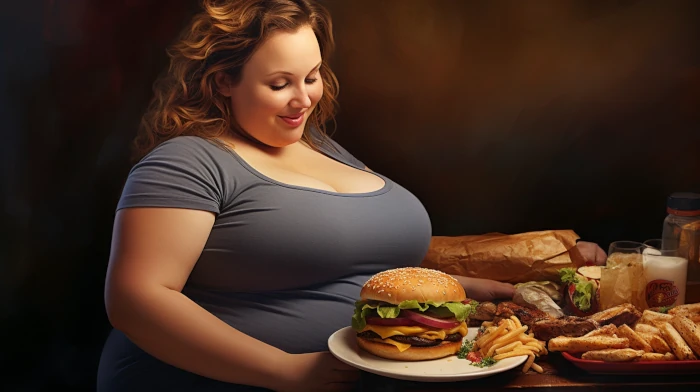The lifestyle choices of a pregnant woman significantly impact the future well-being of her child, and that includes diet. The foods expectant mothers consume can greatly influence their child’s taste preferences and food choices long after birth. In fact, growing research shows that pregnant women consuming a high amount of junk food aren’t just affecting their own health, but they’re also programming their baby’s brain to crave the same unhealthy options.
Junk food addiction starts in the womb
A lab study conducted at the University of Adelaide in Australia found that pregnant mothers aren’t the only ones affected by junk food—newborns are too. Not only does junk food stimulate the brains of pregnant women similarly to drugs, but it also influences the baby’s brain formation, causing the newborn to crave the same unhealthy foods.
Beverly Muhlhausler, Ph.D., researcher at the University of Adelaide, emphasizes the significance of the study: “The results of this research will ultimately allow us to better inform pregnant women about the lasting effect their diet has on the development of their child’s lifelong food preferences and risk of metabolic disease.” She hopes that by understanding the direct correlation between a mother’s diet and the health of her child, expectant mothers will be encouraged to make better diet choices that contribute to the well-being of their child.
Gerald Weissmann, M.D., editor-in-chief of The FASEB Journal, where the study was published, reiterates the validation of junk food’s addictive nature. He says, “This study shows that addiction to junk food is true addiction. Junk food engages the same body chemistry as opium, morphine or heroin. Sad to say, junk food during pregnancy turns the kids into junk food junkies.”
##The hard-to-break cycle of unhealthy eating habits
When an expectant mother indulges in junk food, she’s not only at risk of health problems during pregnancy, but she’s also potentially increasing her child’s risk of obesity and associated health conditions. Because of the addictive qualities of junk food, children of junk-food-consuming mothers have tougher battles breaking the cycle of unhealthy eating habits. By understanding the reality behind pregnancy cravings and making conscious choices, expectant mothers can take essential steps to help ensure their baby’s future health.
Tips for a healthier pregnancy diet
By adopting healthier eating habits, pregnant women can reduce the danger of their child developing a preference for unhealthy food. Here are some tips for a more nutritious pregnancy diet:
- Balance is key: Aim for variety in food choices, including a mix of fruits, vegetables, lean proteins, whole grains, and low-fat dairy.
- Portion control: Overeating during pregnancy is a common issue. To avoid unhealthy weight gain, be mindful of portion sizes and eat smaller meals more frequently.
- Stay hydrated: Drinking enough water helps with digestion, reduces bloating, and increases overall well-being. Expectant mothers should aim for at least eight glasses of water daily.
-
Choose nutritious snacks: Instead of reaching for potato chips or a chocolate bar, opt for healthier alternatives like nuts, seeds, yogurt, or fruit.
-
Limit processed food: Processed foods contain excess sugar, salt, and unhealthy fats. Limit their intake and replace with whole, unprocessed foods.
-
Stay active: Engaging in regular, moderate physical activity during pregnancy can help control weight gain and increase overall health. Talk to a healthcare provider about suitable activities for your stage of pregnancy.
-
Take a prenatal vitamin: Supplement your diet with a prenatal vitamin, as recommended by a healthcare provider, to ensure optimal nutrient intake for both your health and your baby’s development.
By being conscious of the food choices made during pregnancy, expectant mothers can directly impact their child’s future eating habits and their lifelong relationship with food. This can result in reduced susceptibility to health risks such as obesity and metabolic diseases, paving the way for healthier lives for both mother and child.



